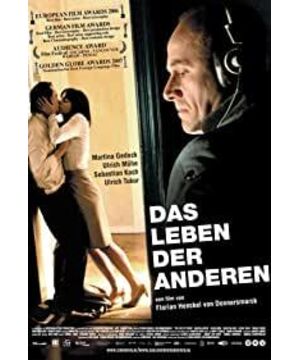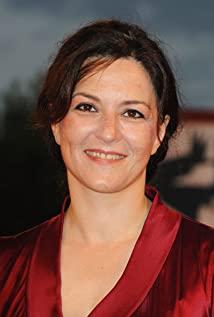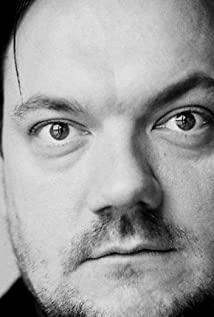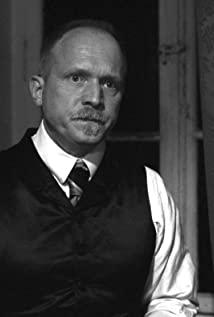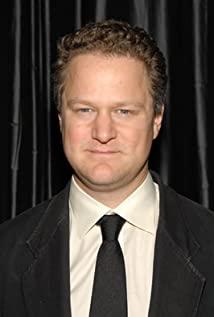By AO SCOTT
Published: February 9, 2007
“The Lives of Others” is haunted by a piece of music called “Sonata for a Good Man,” composed for the film by Gabriel Yared and, at the same time, magically familiar to some of its characters. Like the story that surrounds it — a suspenseful, ethically exacting drama, beautifully realized by the writer and director Florian Henckel von Donnersmarck — Mr. Yared's piece is melancholy, elegant and Complicated.
In the movie "Eavesdropping Storm", the lingering music is called "The Good Man Sonata", which was composed exclusively for the film by Gabriel Yarid. However, the characters in the film are Surprisingly familiar with the music. The screenwriter and director Florian Henkel von Donnerschmark presents us a beautiful suspense story that is also highly moral; Yarid's music works are melancholic, elegant and complex.
Goodness, as a subject for art, risks falling prey to piety and wishful thinking, but “The Lives of Others,” one of the nominees for this year's best foreign-language film Oscar, never sacrifices clarity for easy feeling. Posing a stark, difficult question — how does a good man act in circumstances that seem to rule out the very possibility of decent behavior? — it illuminates not only a shadowy period in recent German history, but also the moral no man's land where base impulses and high principles converge Mr. von Donnersmarck, born in West Germany in 1973 and making his feature film debut, demonstrates astonishing visual and narrative rigor. Even more remarkably, he is able to reach back into the totalitarian past and over the Berlin Wall into the grim, brutal absurdity of the late, unlamented German Democratic Republic,and lay bare the anxious, cruel psychology of socialism as it once existed.
Taking goodness as the subject of art may degenerate into moral preaching or idiotic dreaming. However, "Eavesdropping Storm" won the Oscar nomination for best foreign language film this time, which is better than keeping its clear connotation without losing its profoundness. The film poses such a harsh and difficult question to us: In an environment where integrity is totally intolerable, what should a good person do? What the film illuminates is not only a dark period in contemporary German history, but also reveals a moral "no man's land" where despicable behavior and noble sentiment converge. Director Donner Schmack was born in West Germany in 1973. His film debut showed stunning visual effects and narrative tension. What is even more amazing is that he was able to go back into the depths of the totalitarian past, cross the towering Berlin Wall, and unearth the past society from the dark and cruel and absurd history of the Democratic Germany that has long been ancient and no one regrets. The anxious and miserable inner world of an ideological country.
There are two good men in “The Lives of Others,” which starts in Berlin in 1984, and they are presented in counterpoint, never on screen at the same time. One, Georg Dreyman (Sebastian Koch), is a successful playwright; the other, Capt. Gerd Wiesler (Ulrich Mühe), is the Stasi officer who spies on him. Georg, tall and handsome, with a mane of brown hair and a natural grace that stops just short of arrogance, leads something of a charmed life, enjoying a measure of official favor without losing the respect of his fellow artists, who are not all as lucky, or as circumspect, as he is. He shares a roomy apartment in an old building (the kind a capitalist real estate agent would describe as “Full of character”) with his girlfriend, Christa-Maria Sieland (Martina Gedeck), a tall, lovely actress who also stars in his plays.
"Eavesdropping Storm" tells a story that took place in Berlin in 1984. In the story, there are two images of good people who echo each other, but they have never appeared on the screen at the same time. One is the famous playwright Georg Dremann (played by Sebastian Koch), and the other is the National Security Agency spy Gold Weissler (Ulrich Moore) who is responsible for eavesdropping on him. Acting) Colonel. The playwright is tall and handsome, with brown sideburns, and graceful in nature, which makes people feel ashamed; his life has always been easy, and he can be taken care of by the authorities without losing the respect of his fellow artists who are not as fortunate and prudent as him; he Living with his girlfriend in a spacious apartment in an old-fashioned mansion (real estate agents in capitalist countries would use "very individual taste" to describe his residence), his girlfriend Christa-Maria Zelande (Maria Gore) Dirk) is a tall, handsome actress and a star in the works of a playwright.
Wiesler, in contrast, appears at first to be a virtual caricature of the unsmiling Stalinist bureaucrat, with a touch of the old Gestapo thrown in for good measure. Wiry and bald, he lives alone in a drab, brutalist high-rise apartment building, distracting himself with state-run television (which reports on chicken farming and declares that “the 10th Party Conference economic policy is solid”) and a quick visit from a prostitute.
In stark contrast to the playwright is Weisler. At the beginning of the film, he appeared as a true portrayal of the Stalinist bureaucracy who never laughed at all, in addition to the taste of the old Gestapo. He was thin, a little bald, and lived alone in a boring high-rise apartment building of brutalism; he watched national television programs (reporting the development of the chicken industry and "the economic policy of the 10th Party Congress is very strong" and so on) , Find a prostitute to vent a little, as a supplement to life.
He is first seen lecturing a room full of aspiring secret policemen in the techniques of interrogation, and he addresses this task and his surveillance of Georg with the proud discipline of a professional and the zeal of a true believer. (To imply that “our humanistic system" would persecute an innocent person, he tells one of his prisoners, is itself potentially grounds for arrest.)
At the beginning of the film, Weissler gave a lecture to a young secret police in a classroom about the techniques of interrogating prisoners. Whether it is a lecture or a watch playwright, he will use the professional discipline he is proud of and be full of enthusiasm for faith in the entire system to complete the task. (He told a prisoner that if "our humanized system" persecutes an innocent person, it must be because that person has the potential to commit a crime.)
It is not inaccurate to describe “The Lives of Others” as the story of how both men become disillusioned and hasten each other's disillusionment. But the paradoxes inherent in this story — which are central to Mr. von Donnersmarck's brilliant exposition of the Orwellian logic of East German Communism — are worth pausing over. It is not simply that Wiesler, the state-sanctioned, clandestine predator, develops a measure of sympathy for his quarry as he listens in on Georg's private, unguarded moments ("presumably they have intercourse," he types in his daily report after eavesdropping on Georg's birthday party). Surely his training would have inoculated him against this kind of reverse Stockholm syndrome.
If "Eavesdropping Storm" talks about how the two people experienced the disillusionment and how to accelerate the process of the other's awakening after the disillusionment, this is probably not entirely accurate. However, the seemingly ridiculous and contradictory but true things contained in this story are indeed worthy of our consideration. This seemingly contradictory truth is the logical truth revealed by George Orwell in the communist system of East Germany, and it is also a lot of directors. The core of Naschmark's wonderful work. This story cannot be simply summarized as: when the minions of the state apparatus and the secret police Weissler spied on the unguarded private life of his surveillance subject Georg, they actually showed pity for him (Weissler was monitoring Georg’s birthday party was marked with “It is assumed that they are having sex” in the daily report after his birthday party, because the training of the secret police certainly includes preventing the occurrence of this “reverse Stockholm syndrome”.
Rather, even as Georg is driven toward actions that implicate him, for the first time, in dissident activity, Wiesler becomes convinced of Georg's essential innocence and takes steps to protect him. The plot, as it acquires the breathless momentum of a thriller, also takes on the outlines of a dark joke. The poet and the secret policeman — both writers, in their differing fashions — may be the only two true patriots in the whole GDR; in other words, the only people who take the Republic's stated ideals at face value. But since the nation itself functions by means of the wholesale and systematic betrayal of those ideals, the only way Wiesler and Georg can express their loyalty is by committing treason.
It can be said that just when Georg was about to act to implicate himself in political dissent activities for the first time, Weisler began to believe that Georg was innocent, so he began to take actions to protect him. The plot of the movie is not only exciting but also has a black humor. The poet and the secret police are actually writers, but the way they write is different. They may be the only two true patriots in the entire GDR, who have truly put into practice the high-sounding ideas that this country believes in. However, since the way the country itself operates is to betray these ideas on a large scale and systematically, the only way Weisler and Georg can express their loyalty to these ideas is betrayal.
Wiesler is at first suspicious of Georg, whose social polish and air of entitlement certainly don't seem very proletarian. But he soon discovers the real reason for his investigation. Minister Hempf (Thomas Thieme), a government official and former Stasi bigwig, is infatuated with Christa-Maria (who is unable to fend off his grotesque attentions), and he wants some dirt on his rival. Wiesler's boss, Colonel Grubitz (Ulrich Tukur) — the closest thing Wiesler has to a friend — is happy to advance his own career prospects by going along with the minister's wishes. Faced with such corruption and cynicism at the highest reaches of the party, what is a good man — or, for that matter, a dutiful Communist — to do?
Weisler was initially suspicious of Georg, because the playwright’s glamorous social status and full of power were obviously out of line with the proletariat, but he soon discovered that the real reason for arranging to monitor the playwright was actually Hempfer (Thomas Thiem), the Minister of Culture and the former head of the Security Agency, coveted the playwright’s girlfriend Christa Maria (the actress was totally unable to resist the Minister), so he wanted to find out what he could do with his love rival. . Weisler’s superior, Colonel Grubitz (played by Ulrich Gallery), is very happy to cater to the minister’s wishes in order to continue climbing. He is almost a friend to Weisler. In the face of such corruption and cynicism at the top of the party, what should a good person or a responsible party member do?
There is a bracing, old-fashioned quality to Mr. von Donnersmarck's film, which supplies us with good guys to root for and villains to despise. But it also shows, with excruciating precision, the cruelty with which a totalitarian state can exploit the weakness and confusion of its citizens. And even as they are, to some extent, enacting a morality play, the actors also seem like real, vulnerable people forced into impossible choices. This is especially true of Ms. Gedeck, whose natural nobility — her height , her carriage, the strong line of her jaw — makes Christa-Maria's half-hidden fragility all the more poignant.
Donner Schmack’s movies are a bit of an inspiring cliché that makes us follow good and hate evil. However, the film also reveals with painful precision how a totalitarian country can cruelly exploit the weakness and ignorance of its people. Even if the characters in the film are performing a moral drama in a sense, how do they look like real and fragile people are forced to make choices that extinguish their conscience. This is especially true in Ms. Godek, the actor of Christa Maria. Her natural nobility and kindness, including her body and posture and the hard line of her chin, half cover the characters in the play. The fragility is strongly contrasted.
The suspense comes not only from the structure and pacing of the scenes, but also, more deeply, from the sense that even in an oppressive society, individuals are burdened with free will. You never know, from one moment to the next, what course any of the characters will choose. Mr. Mühe conveys Wiesler's curious evolution with appropriate meticulousness and reserve. It is only in retrospect that you appreciate the depth and subtlety of emotion that underlie his performance.
The suspense of the film comes not only from its structure and the speed of the scene, but from a deeper sense, it also comes from the idea that even in an oppressed society, individuals still have free will. The audience never knows what choice these characters will make in the next moment. Mr. Moore, the actor of Weisler, appropriately displays the cautious and self-depressing qualities of the strange mentality of the people in the play. Only in the aftertaste of the film can the audience appreciate the depth of emotion hidden under his performance.
A terrible sadness lies at the heart of “The Lives of Others” — a reckoning of lives and talents wasted by a state with no good reason to exist apart from the maintenance of its own power. But there are comic, even farcical elements as well A dictatorship that calls itself a democratic republic is inherently ridiculous as well as malignant
. But one thing that is ridiculous and even ridiculous is that an authoritarian country that calls itself a "democratic republic" is simply absurd and evil in nature.
In 2007 we, of course, know in advance the punch line that history will deliver in the autumn of 1989. But the easy, complacent distance that informs much historical filmmaking is almost entirely absent from this supremely intelligent, unfailingly honest movie.
We are in 2007 Watching this movie in 2009, of course, I knew in advance that the autumn of 1989 must be mentioned in the movie. However, the calm and complacent mood that is often found in historical dramas is not seen in this movie. It is a movie of
unparalleled talent and infinite sincerity.
Early in the film, Minister Hempf condescendingly mocks the faith in humanity Georg expresses in his plays: “People don't change,” he says. And in some ways Mr. von Donnersmarck endorses the minister's point of view, even as he turns its . cynicism into cause for hope Georg and Captain Wiesler, though they occasionally waver and worry, remain true to their essential natures, and thus embody the film's deepest, most challenging paradox: people do not change, and yet the world does.
movie The first half of Minister Hempfer expressed his arrogant mockery of the belief in humanity revealed in the play created by Georg after watching the drama: "People do not change." In a sense, the director Donner Schmack supported the minister's views, even when the minister continued to ridicule the pursuit of hope. Although the playwright Georg and the secret police Colonel Weissler are occasionally shaken and worried, they still insist on being faithful to their truest nature. This has also achieved the deepest and most amazing paradox in the whole movie: people are not. It will change, but the world will change.
View more about The Lives of Others reviews


